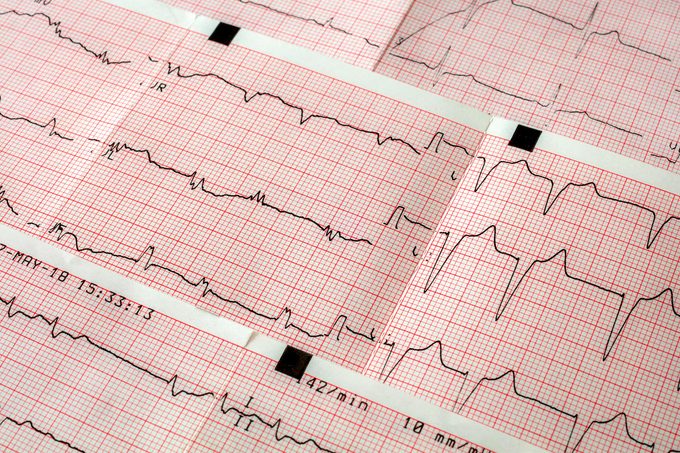My Heart Palpitations Turned Out to Be Lung Cancer
Updated: Mar. 28, 2022
Every five minutes an American woman is diagnosed with lung cancer. After her diagnosis, Colette Smith is on a mission to educate other women.

Four years ago on a late night, Colette Smith, 53, sat alone in her living room watching TV. The rest of her family had gone to bed earlier. Suddenly, she noticed her heart-rate speeding up. It slowed, but then happened again a few minutes later; this time the rapid pulse continued for ten minutes. “I thought it was strange, and it had never happened before—it made me sit up and pay attention.” She woke up her husband, and together they guessed that she was having heart troubles. Smith wasn’t. But she was experiencing the symptoms of a deadly disease.
Her husband drove her to the ER where a doctor suggested they do a CAT scan to check for blood clots in her lungs. “I knew when the doctor came to give me the results of the CAT scan that he looked concerned. He said they found a nodule in my left lung and several in my right. He told me to follow up with my primary care doctor. I didn’t think anything of it, though.” The presence of nodules don’t always mean a cancer diagnosis—here are 13 things to know about lung nodules.
When her regular doctor thought the CAT scan results were inconclusive, and Smith put the event out of her mind. “A year later, my primary doctor called me back and said he wanted to repeat the CAT scan to see if anything had changed.” She went in, and the next day she got a call from the doctor—even though he was away on vacation. “I knew that wasn’t good. The nodules were still there, and he wanted to do a PET scan.”
Though Smith’s PET scan results were also inconclusive, her doctor wasn’t satisfied. “I asked what he would do if he were in my shoes—he said he would take it one step further.” Smith found a highly recommended cardiothoracic surgeon. “He looked at my scans and said he could tell right away it was 1A lung cancer. I wasn’t so sure, so I asked for a biopsy.” When the biopsy was inconclusive, Smith’s surgeon recommended she get surgery to find exactly what they were dealing with. “I had the surgery and he was right. It was stage 1A lung cancer. The surgeon removed the upper lobe of my left lung, along with lymph nodes that may have been affected.”
Lung cancer is the leading cause of cancer-related death among men and women; about 142,670 people will die from the disease this year alone. Though smokers are more likely to develop lung cancer, many people—like Smith—develop it with no history of smoking. Often, patients will have no obvious symptoms until the cancer has spread. If symptoms are present, they’re likely to be a chronic or worsening cough (here’s when to worry about a cough that won’t go away), coughing up blood, chest pain that worsens with deep breaths or laughter, hoarseness, loss of appetite, weight loss, shortness of breath, fatigue, chronic lung infections, and sudden onset wheezing. Shoulder pain may also be a symptom—though that’s just one of possible reasons you have pain in your shoulder.
Though her recovery was difficult, Smith is feeling much better. She credits her walking routine and regular therapy with a mental health provider. “It’s amazing how much movement helps with pain management. Finding a therapist was also helpful because I needed someone I could trust and connect with outside of my family, who could help me understand it all.”
Because her doctors caught the cancer early, Smith did not require radiation, chemotherapy, or other targeted cancer therapies. After surgery, Smith was declared cancer-free. “I was one of the lucky ones,” she says. Smith continues to get scans every six months to check for recurrence. She’s also joined up with the American Lung Association to become one of their Lung Force Heroes—survivors that help raise awareness about the disease. (You can learn more about Lung Force and fund-raising efforts here.) Smith’s words of advice to others facing a frightening diagnosis? “This is probably one of the worst things you’ll ever face, so be sure to get care that you’re comfortable with—don’t settle for less.”

















